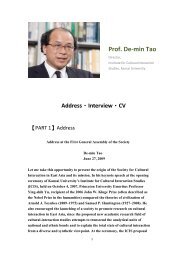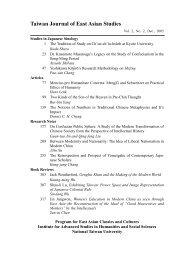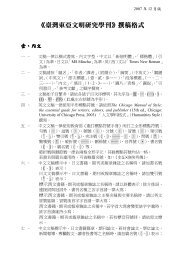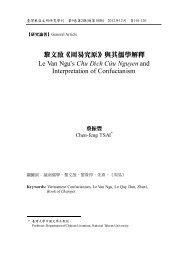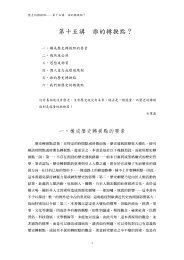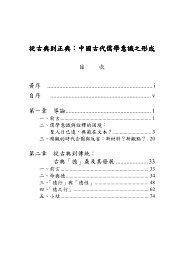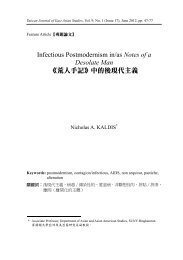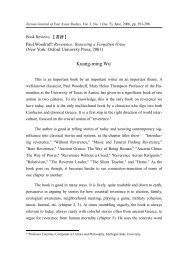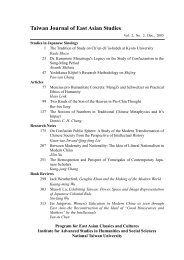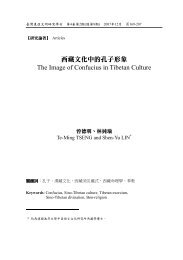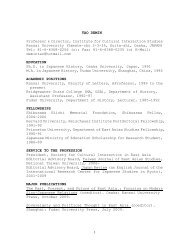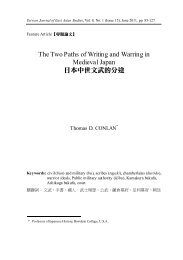臺灣東亞文明研究學刊 - 東亞經典與文化研究計畫 - 國立臺灣大學
臺灣東亞文明研究學刊 - 東亞經典與文化研究計畫 - 國立臺灣大學
臺灣東亞文明研究學刊 - 東亞經典與文化研究計畫 - 國立臺灣大學
Create successful ePaper yourself
Turn your PDF publications into a flip-book with our unique Google optimized e-Paper software.
Jeng-Guo CHEN Scottish Discussions of Indian Effeminacy in the Eighteenth Century 151<br />
This paper describes the emergence of a heated debate over virtue and luxury<br />
in eighteenth-century Scotland, focusing on the intersections between that debate<br />
and Scottish discussions of British India. Prior to the French Revolution, the British<br />
discourse on India fastened on the effeminacy of the Hindus as the trait rendering<br />
India suitable to a place in the British Empire. British writers stated that it was<br />
because of this effeminacy that the Hindus were able to produce luxury for the<br />
Europeans. Such a cultural ideological justification for British colonization of India<br />
both marginalized Islam and provoked in Britain a domestic controversy over the<br />
corrupting influence of luxury. In any case, the elevation of Hindu India to the great<br />
brotherhood of civilizations did not last long: the advance of imperialist sentiments<br />
engendered by French social upheavals and military adventures swept it away. As<br />
martial values surged to a position of dominance, the identification of Muslim<br />
culture with masculinity sharply contrasted with Hindu femininity. I hope to show<br />
that the British shift from venerating Hinduism to Islam was conditioned by the<br />
Scottish Enlightenment debate on virtue and luxury.<br />
Hindu-centrism and the Idea of Luxury in Britain<br />
The eighteenth century was both an age of improvement and a time of great<br />
national self-consciousness. The former was implicated in the English culture of<br />
consumption, and the latter was prompted by a series of wars fought over colonial<br />
interests, religious factions and monarchial successions. But were these phenomena<br />
compatible? To the writers who emerged from Britain's polite culture, such as<br />
David Hume and Adam Smith, war and consumption seemed to be at odds, even<br />
contradictory. But the proof that they could be reconciled occupied a large part of<br />
the world map: British colonial India.<br />
The British Empire in India was founded on military force. In the 1760s<br />
Robert Clive led the British defeat of the Mughal Empire, and in 1765 India agreed<br />
iii



